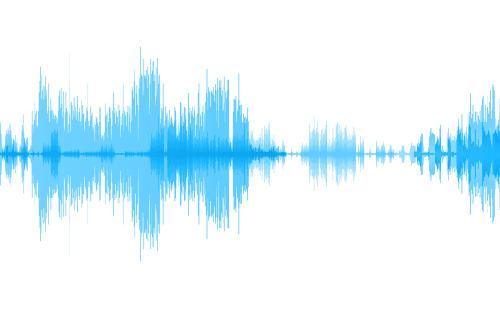You might not expect mice to tell us much about human speech disorders. But, in fact, a new study reported in the Cell Press journal Current Biology on April 14 shows that mice could teach us a lot about what makes people stutter, and perhaps also how to help them stop.
Mice carrying a mutation that has been linked to stuttering in humans show changes in the pattern of their calls, the new study shows.
"Many aspects of the vocalizations of our mice with the mutation are normal," says Terra Barnes of Washington University in St. Louis. "Where they differ is in the timing and temporal sequencing of their vocalizations. Their vocalizations have longer pauses than those of their littermates without the mutation, and there is evidence for more stereotyped repetitions in their vocalizations. These are very similar in some ways to the stuttered speech of humans who carry the same mutation."
 This is audio of a mouse with the "stuttering" mutations. Credit: Barnes et al./Current Biology 2016
This is audio of a mouse with the "stuttering" mutations. Credit: Barnes et al./Current Biology 2016
Earlier studies had linked mutations in a gene called Gnptab (for N-acetylglucosamine-1-phosphotransferase subunits alpha/beta) to stuttering in some people. Severe deficits in this pathway are known to give rise to serious neurological and other symptoms in a disorder known as Mucolipidosis II/III.
"The only known effect of another set of mutations on the same pathway is stuttering," Barnes says. "People who stutter and carry these 'stuttering' mutations are otherwise neurologically normal."
The researchers, including Barnes along with Tim Holy, also at Washington University in St. Louis, and Dennis Drayna at the National Institute on Deafness and Other Communication Disorders (NIDCD), wondered whether studies in mice could lead to new insights into those stuttering mutations. For that to work, mice engineered to carry the same mutation would need to show abnormalities consistent with stuttering. And, it turns out, they do.
The Gnptab gene is part of a pathway that targets enzymes for degradation. But, as Holy says, it had remained uncertain how this "remarkably specific speech deficit arises from mutations in genes known only for their role in cellular housekeeping."
Gnptab-mutant mice behaved normally in other ways, but their calls were fewer and showed changes in timing as seen in people who stutter. Using language-agnostic metrics for auditory signal analysis in mice and humans carrying this mutation, the researchers found very similar abnormalities.
The findings suggest that mice could lead to a new understanding of stuttering. They may ultimately also lead to treatments with the potential to help millions of people around the world who stutter.
"Stuttering imposes an enormous burden on those that are severely afflicted with the disorder, yet its underlying causes have been very poorly understood," Drayna says. "While it's surprising that the disorder can, to some degree, be recreated in a mouse, having an experimentally tractable animal model for some aspects of this disorder presents many exciting, new opportunities to move research in this area forward."
source: Cell Press